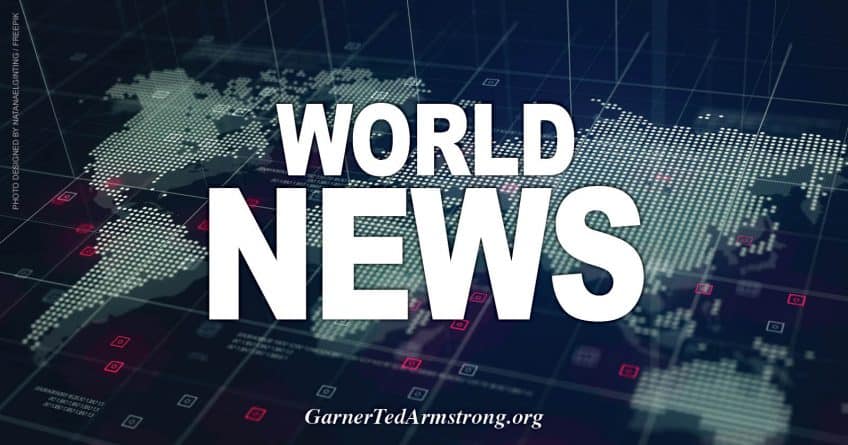
It has been three months since Juan Guaidó captured the attention of the world and his countrymen by assuming Venezuela’s interim presidency.
Three months since hundreds of thousands of Venezuelans poured into the streets, celebrating the promise of a free Venezuela. Three months since the democratic nations of the world threw their backing behind that promise. Throughout it all, Nicolás Maduro’s dictatorship has persisted.
The strategy was sound. The international community would ramp up pressure on all fronts to make the military’s continued support of Maduro untenable. Meanwhile, the interim government would coordinate massive deliveries of humanitarian aid to provide immediate relief to a population dying from malnutrition and previously eradicated diseases.
Three months later, military defections total some 1,500 — a limited success but far from the sorts of numbers needed to make Maduro’s permanence unviable.
With the armed forces under his control and armed civilian “colectivos” at his service, Maduro was able to block aid shipments at Venezuela’s borders, accusing the U.S. of having poisoned the food meant for starving citizens and refusing to acknowledge the humanitarian crisis.
It’s time to accept that the current stalemate requires a tweak in strategy. That is: A peaceful transition to democracy requires broadening the umbrella of those seeking to oust Maduro and clamoring for a return to political and economic stability.
That means reaching out to dissident Chavistas and building an inclusive process that has a future for them and the military.
There is no shortage of anti-Maduro elements of Chavismo in Venezuela today. But as of yet, all but a few are choosing to remain neutral in the face of the country’s impetuous collapse and humanitarian crisis.
These people can’t remain neutral if Venezuela is to see a peaceful way out of this crisis, though an all-stick, no-carrot approach will ensure that they do.
That said, it’s understandably difficult to swallow for those who have suffered under the economic mismanagement and corruption that Chavismo imposed — and the dictatorial rule that has come to pass under Maduro.
For people whose loved ones have been starved, killed or taken as political prisoners, it’s unpalatable to imagine any element of Chavismo being included in a democratic transition.
But Venezuela is in a state of utter collapse, and it is metastasizing across the region. We continue to see that rock bottom is not rock bottom. As more and more people die or flee, Maduro has managed to hold onto the levers of power.
He does so buttressed by the neutrality of Chavistas who despise him, who genuinely want a return to democracy but who fear that, that would exclude them entirely.
In the face of a situation this dire, sometimes the ends justify the means. Maduro must leave power, and there’s no scenario in which that happens without a critical mass of Chavista buy-in.
Venezuela’s own interim government has become clear on this point. The country’s democratic transition must welcome people from across the political spectrum, from left to right, with the sole condition that they truly be committed to the restoration of pluralistic, liberal democracy in Venezuela.
Promises have been made, but more specific guarantees are needed so that the military, in particular, knows that its legal interests will be protected under a new government.
All this is why we can’t continue to look at things in black and white. There is now considerable overlap in the Venn diagram of people still sympathetic to the Chavista project and people who want Maduro out. Capturing that sizable demographic is critical for a democratic alternative to prevail.
Strategically, there would be nothing more impactful. Many of these Chavista dissidents — closeted and not — still hold considerable influence among current non-dissident circles. They know how the levers of power work; they know where the fault lines within Chavismo rest. There is no group of people with a greater ability to fracture Maduro’s support.
At a time when Venezuela is becoming a symbolic battleground between the world’s democratic and authoritarian states, the peaceful triumph of inclusive democracy is paramount.
It would serve to undercut the global anti-democratic project undertaken by strongmen in states like Russia and Cuba, who see in the proliferation of dictatorships abroad a chance to legitimize their own autocratic rule.
Most importantly, within Venezuela, the urgency of the moment can’t be understated. The regime is cracking down more and more, suffocating its own people and destabilizing a region in desperate need of stability.
If ending this crisis peacefully requires swallowing a few bitter pills, Venezuela’s transition leaders have decided it’s worth it. And the democratic community of the world should stand behind them.
Jason Marczak is the director of the Atlantic Council’s Adrienne Arsht Latin America Center. He is on Twitter at @JMarczak. Diego Area is an associate director at the Atlantic Council’s Adrienne Arsht Latin America Center. He is on Twitter at @DiegoArea.
[Disclaimer]








